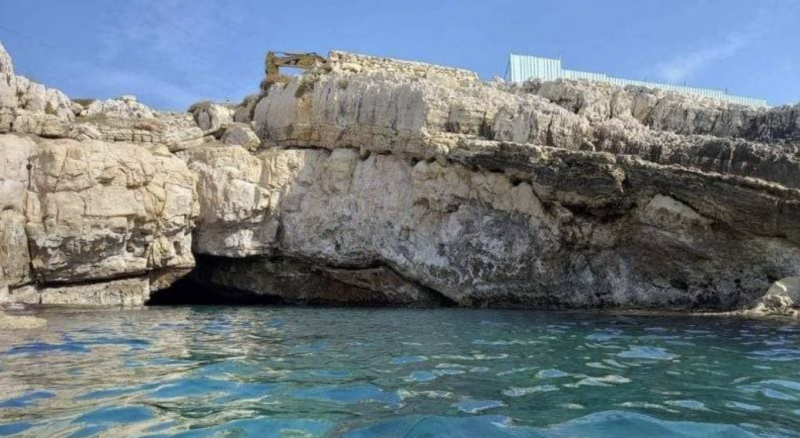
The sea cave just below a private construction site in Amchit. (Credit: Michel Hallak)
Ghada Aoun, Public Prosecutor at the Court of Cassation in Mount Lebanon, issued a ruling on Sunday calling for "an immediate halt to work" on a construction site located above a natural coastal cave, home to endangered Mediterranean monk seals in Amchit, north of Jbeil. The worksite had already been suspended and then relaunched last year.
The magistrate called for the work to be suspended until an environmental impact assessment is carried out.
Judge Aoun made her decision following a complaint lodged by the Terre Liban organization and other activists, who stressed the importance of carrying out an environmental impact study, given the site's sensitivity, which is home to monk seals.
The resumption of work on this site was authorized last week by the Ministry of the Environment, subject to certain conditions, including a ban on the use of large construction machinery for digging.
Antoine Issa, president of the Amchit municipal council, confirmed in a statement reported by the official National News Agency (NNA), that the owner of the land, located some 15 meters from the cave, was able to obtain a building permit from the Ministries of Transport, the Interior and the Environment.
"The landowner has given the municipality a written undertaking not to touch the cave at all. We asked him to place a sensor to ensure that the work does not affect the rock and seals, not to use large construction machinery, and an engineer linked to the municipality is monitoring the work," added Issa.
According to the description of the Mediterranean monk seal on the IUCN Red List website, the mammal is "possibly extinct" in Lebanon, and only 350 to 450 mature individuals remain in the Mediterranean basin. The IUCN cites residential and commercial development among the main threats to this marine mammal.
According to a study by Balamand University's Environmental Institute, at least 80 percent of Lebanon's 220 kilometers of coastline are privatized.
This article was originally published in L'Orient-Le Jour.